In November 2024 TV channel Public filmed a report about ketamine therapy at the Expio clinic and the prospects for the development of psychedelic medicine in Ukraine.
Watch this story on our YouTube channel.
Center of Psychotherapy, Psychosomatics and Psychedelic Medicine Expio
Opening Hours : Mon-Fri 10.00 - 19.00.
Tel. Kyiv: 0737308088, Lviv: 0638860060
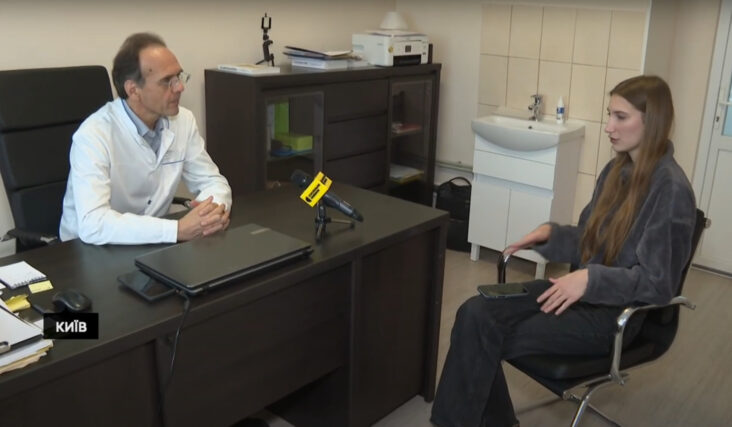
In November 2024 TV channel Public filmed a report about ketamine therapy at the Expio clinic and the prospects for the development of psychedelic medicine in Ukraine.
Watch this story on our YouTube channel.

Depression is the most common mental illness in the United States, affecting 30 percent of Americans at some point in their lives. But despite half a century of research, ubiquitous advertising, and blockbuster sales, antidepressants just aren't very effective. They treat depression as if it were caused by a chemical imbalance: add more of one key ingredient, or deepen another, and you're done.
At the same time, the treatment can be extremely ineffective. According to the 2006 STAR*D study, the largest clinical trial of antidepressants, less than a third of depressed patients respond to the drug within 14 weeks. After six months and several drugs, only half of the patients recovered. Thirty-three percent do not respond to any drug at all. When the pills work, they're slow — a deadly risk, given that people with mood disorders kill themselves more often than anyone else.
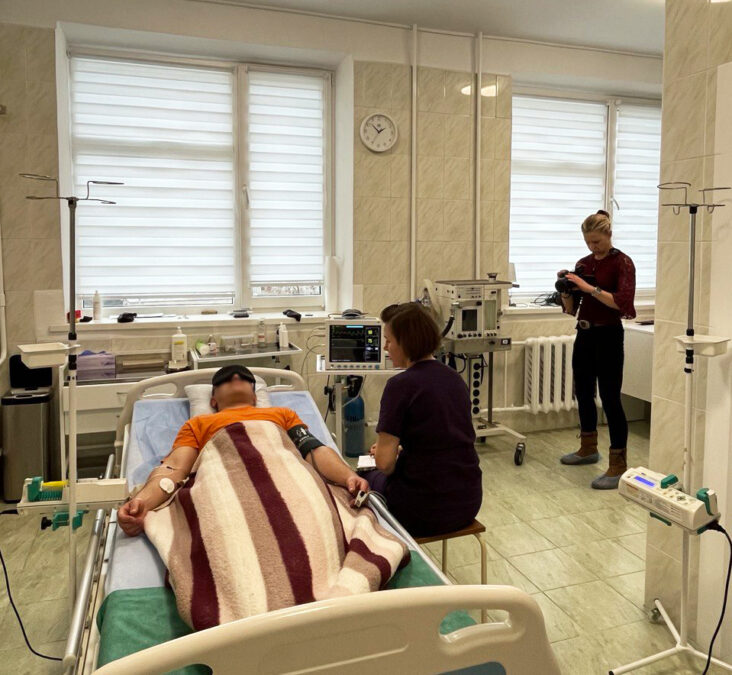
In November, a correspondent of the broadcasting service of the British troops visited the Expo center (British Forces Broadcasting Service) Anna King.
BFBS is a registered charity that has been a pioneer in armed forces broadcasting and communications for over 80 years, bringing the best of British television, sport and music to military families around the world. It is a pioneering military charity that aims to entertain, inform, connect and advocate for the UK Armed Forces, their families and veterans.
BFBS broadcasts in more than 20 countries worldwide and has permanent studios in 10 countries, including Bahrain, Cyprus, the Falkland Islands and Canada.
See the BFBS website a report entitled "Inside a Ukrainian ketamine clinic where soldiers suffering from PTSD are treated" (in English).
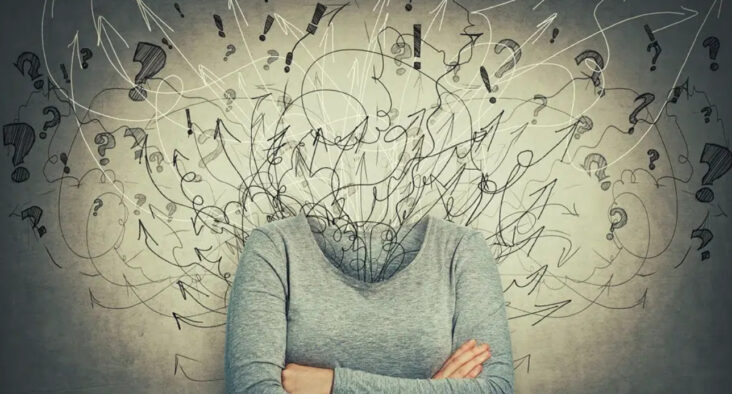
Imagine being offered a choice: to be alone with your thoughts for 15 minutes or to receive electric shocks several times during that time. What will you choose?
At first glance, the answer is obvious – pain seems like a much worse alternative. But a study published in the journal Science in 2014, shows that for many people, the silence of their own thoughts can be even worse. In this experiment, a quarter of the women and two-thirds of the men chose the electric shock over sitting quietly with their own thoughts. One of the experiment participants even electrocuted himself 190 times in those 15 minutes.
These impressive results confirm a simple but troubling truth: most people do not know how to be effectively alone with their inner world. And while this may seem like a small thing, the problem is actually deeper. It is directly related to our mental health and how we cope with life's challenges.
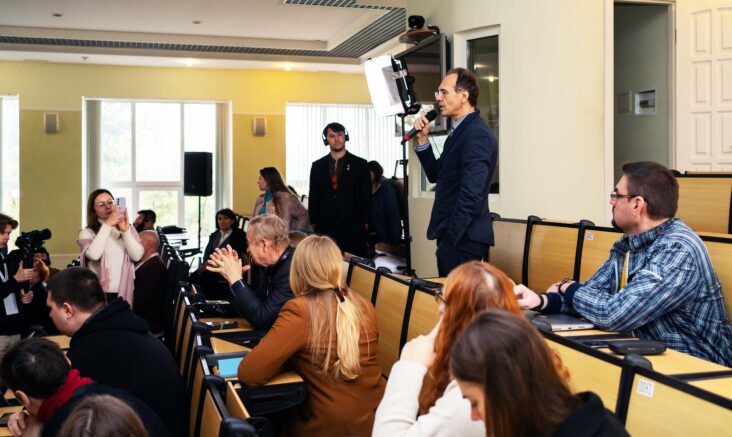
On October 15-17, 2024, the 2nd annual event took place International Health Summit, jointly organized by August Mission and MedGlobal, became a landmark event for medical professionals, researchers, medical companies and experts from the international community.
The participants learned about advanced technologies, the latest treatment methods and best practices implemented by Ukrainian doctors today, based on the best experience of doctors and hospitals around the world. Experts in this field shared their experience and opinions on current and future needs in the field of health care in Ukraine, and also talked about rehabilitation projects.
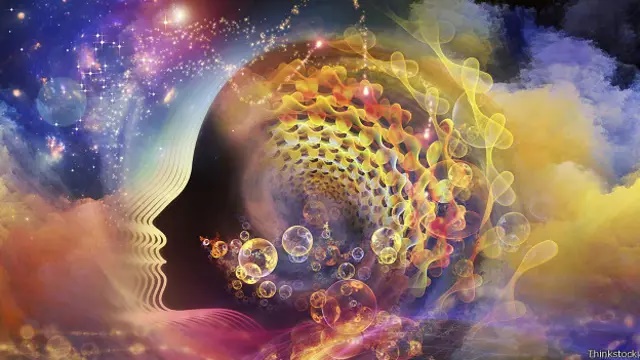
How can psychedelics promote positive changes in consciousness?
Recently, science has been paying more and more attention to the study of the influence of psychedelic drugs on human consciousness. Article in MDPI magazine describes how these substances not only cause deep feelings, but also help people have beneficial psychological experiences that can change their lives for the better.
The role of altered states of consciousness
When under the influence of psychedelics such as LSD, psilocybin, or DMT, people often experience strong emotional and intuitive feelings. Researchers emphasize that such experiences can lead to catharsis - a deep emotional cleansing. These experiences help to rethink life's difficulties, overcome old traumas and look at the world from a new angle.

In September of this year, a pilot complex training program of group ketamine-assisted psychotherapy, initiated by an American charitable foundation, started Heal Ukraine Trauma. Vladyslav Matrenytskyi, director of the Expio clinic, took part in the development of the program. The first group of psychiatrists, psychotherapists, and clinical psychologists completed a one-month course of theoretical and practical training, including at the Expo clinic, and can now provide this therapy to their patients.
Due to the scale of the mental health crisis in Ukraine, 11 million people are projected to need psychosocial support, so solutions that maximize resources and go beyond the 1-to-1 patient-provider model are important. Due to the effectiveness and legal status of ketamine, this training will have a real impact now.
In the long term, the KAP group model may serve as a basis for psychedelic group therapy if psychedelic drugs become legally available in Ukraine. After the initial pilot project, the program will be expanded to more therapists, allowing them to expand their capacity to eventually reach thousands of people with KAP therapy.

Ketamine, known since the late 20th century as an anesthetic, has recently attracted the attention of scientists due to its potential in the treatment of mental disorders and addictions. Research shows its effectiveness in reducing symptoms of depression and anxiety, as well as in working with patients with alcohol or drug addiction. Let's analyze how exactly ketamine can help in addiction therapy and what challenges researchers and doctors face.
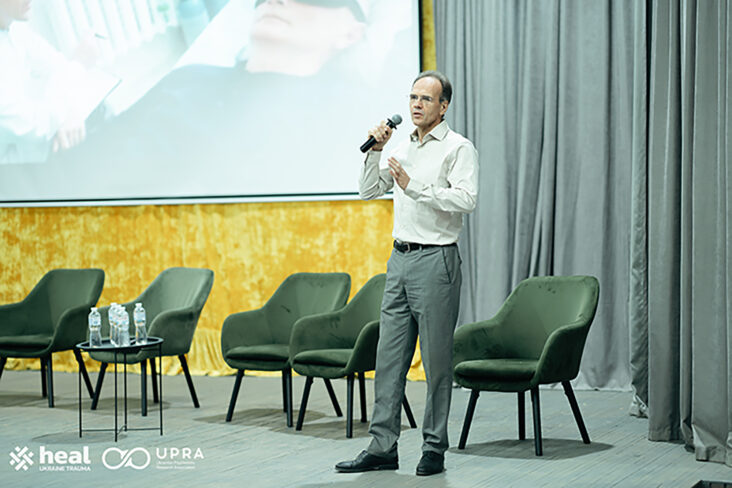
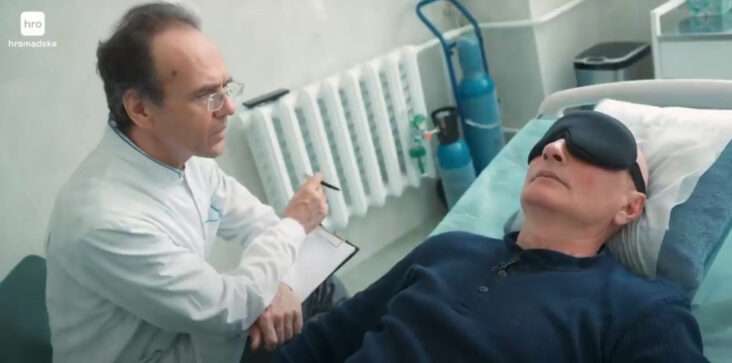
In today's world, more and more people are dealing with mental disorders such as depression, anxiety and post-traumatic stress disorder (PTSD). Traditional treatments, which include drug therapy and psychotherapy, are often time-consuming and not always effective for all patients. However, new research reviewed in the journal's scientific review Frontiers in Psychology, open the prospect of using ketamine in combination with psychotherapy, which can significantly increase the effectiveness of treatment.
What is ketamine and how does it work?
Ketamine is a drug that was originally developed as an anesthetic. However, in the 21st century, scientists have drawn attention to its potential in the treatment of depression and other mental disorders. Ketamine acts on the glutamate receptors in the brain, which helps to change the neural connections and helps to quickly relieve the symptoms of depression. Unlike traditional anti-depressants, which can take weeks to start working, ketamine shows its effects within hours of administration.